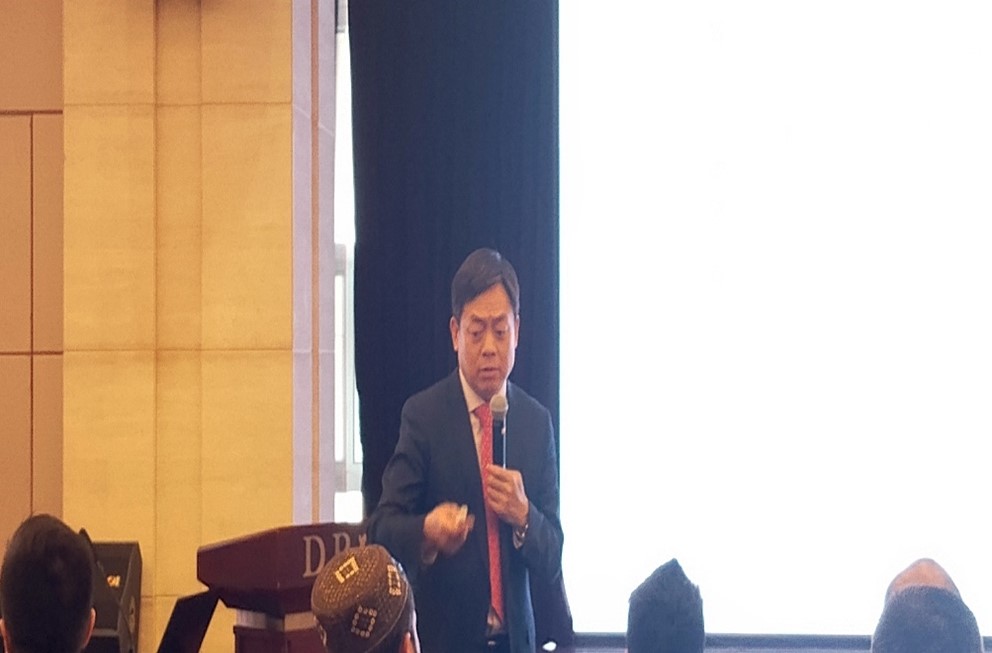China’s Vision for a Shared Future: A Path to Global Harmony and Development
China’s ambitious vision for a "community with a shared future for mankind" is rapidly gaining traction on the world stage, championed by President Xi Jinping and disseminated through various platforms, including academic institutions and international media engagements. This concept, deeply rooted in Chinese philosophy and President Xi’s political thought, seeks to address pressing global challenges such as security threats, economic instability, and developmental disparities, ultimately striving to create a more peaceful and prosperous world for all. The core tenets of this vision emphasize multilateralism, win-win cooperation, mutual respect, and a departure from traditional power dynamics, advocating for a more equitable and inclusive global order.
The recent lecture by Professor Wang Yiwei at the China International Press Communication Center, focusing on Chinese modernization and its global implications, provided valuable insights into this overarching vision. Professor Wang highlighted the unique characteristics of the Chinese model of modernization, emphasizing its focus on people-centered development, harmony between humanity and nature, and peaceful development among nations. This approach, he argued, offers a viable alternative for countries seeking rapid development while maintaining their independence, presenting a distinct path from traditional Western modernization models.
The historical context of China’s rise, from the reforms initiated in 1978 to its current global prominence, underscores the remarkable transformation the nation has undergone. The Chinese Communist Party (CCP)’s leadership, coupled with the collective efforts of the Chinese people, has propelled this rapid modernization and economic growth. This progress, according to Professor Wang, has led to tangible benefits, including reduced prices for essential commodities and a projected dominance in global industrial production by 2030. This economic strength, he posits, positions China as a major player in the global economy, potentially surpassing even a coalition of other powerful nations in manufacturing competitiveness.
Central to China’s vision is the emphasis on a people-centered approach. This philosophy prioritizes the well-being and holistic development of all citizens, advocating for common prosperity and equitable distribution of resources. Furthermore, the Chinese model emphasizes a harmonious relationship between humanity and nature, recognizing the interconnectedness of environmental sustainability and societal progress. This eco-conscious approach contrasts with traditional development models often characterized by environmental degradation and resource depletion. The focus on peaceful development underscores China’s commitment to international cooperation and a departure from zero-sum geopolitical competition.
China’s modernization narrative is also deeply intertwined with its cultural and philosophical heritage. Drawing on Confucian principles of community and shared existence, the concept of a shared future emphasizes the importance of interconnectedness and mutual responsibility among nations. This approach seeks to foster a sense of global citizenship and shared destiny, promoting collaboration and understanding across diverse cultures and political systems. The emphasis on "win-win cooperation" suggests a departure from traditional power struggles and a move towards mutually beneficial partnerships. This principle promotes the idea that global challenges can be addressed more effectively through collaboration and shared solutions.
The Belt and Road Initiative (BRI), a massive infrastructure and development project, serves as a practical manifestation of China’s vision for a shared future. By connecting various countries through infrastructure networks, trade routes, and investment partnerships, the BRI aims to foster economic growth and regional integration, aligning with the broader goal of creating a more interconnected and prosperous world. This initiative reflects China’s proactive role in shaping the global development landscape, offering a concrete platform for international cooperation and shared prosperity.
China’s rise as a global power presents both opportunities and challenges for the international community. Its economic strength, innovative capacity, and diplomatic influence have the potential to contribute significantly to addressing global issues. However, concerns remain regarding China’s political system, human rights record, and assertive foreign policy. Navigating these complexities requires a nuanced understanding of China’s motivations, ambitions, and the implications of its growing influence on the world stage.
The concept of a "community with a shared future" offers a compelling framework for international cooperation. However, its successful implementation requires genuine commitment from all participating nations, transparency in its execution, and ongoing dialogue to address potential concerns. The future of global governance will likely be shaped by the interplay between China’s vision and the responses of other nations, requiring careful consideration of the potential benefits and challenges of this emerging paradigm.














